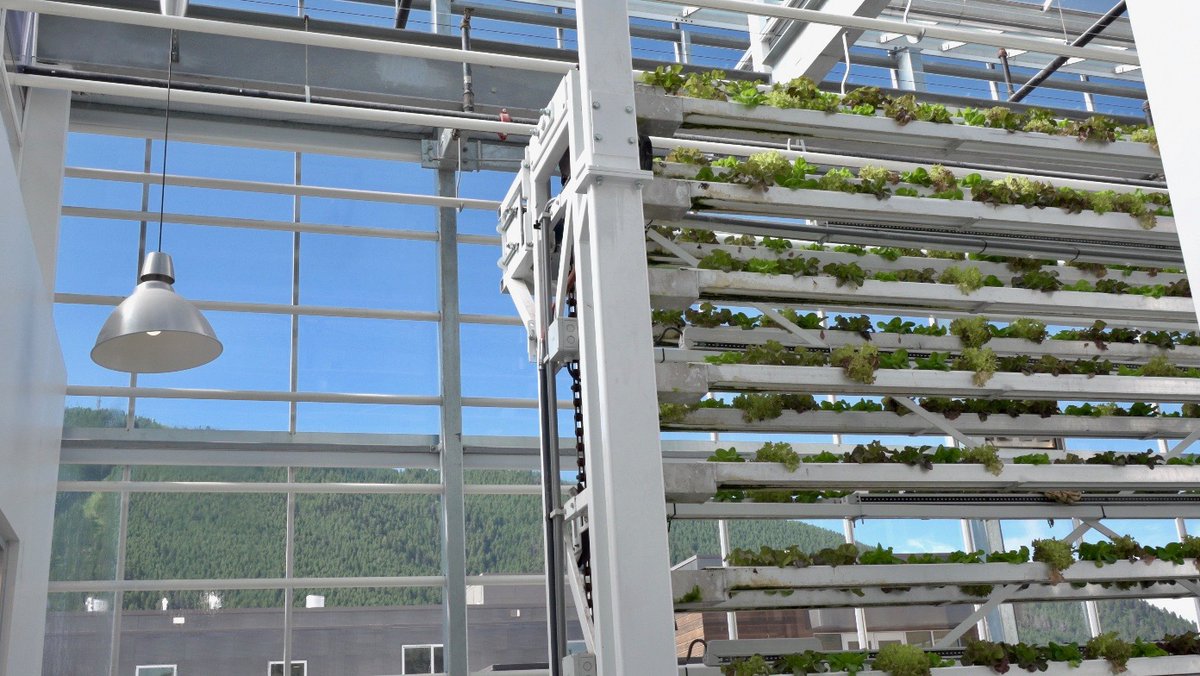For most of the year the soil in Jackson, Wyoming is iced over and the town’s produce is trucked in. Nona Yehia and Penny McBride wanted to bring fresh vegetables to the ski town, but given the scarcity of available land (97% of county land is protected), they turned a tiny vacant lot next to a parking lot into a 3-story vertical farm.
Today, Vertical Harvest produces 100,000 pounds of vegetables a year on a plot 30 feet by 150 feet long; their 1/10th of an acre site grows an annual amount of produce equivalent to 10 acres of traditional farming. Relying on hydroponics and moving carousels, the farm uses 90% less water than conventional farming and doesn’t use any pesticides (only sticky traps).
In an industry with an ongoing labor shortage, Vertical Harvest has tapped into a population with a 78% unemployment rate in Wyoming. Their employees have conditions such as Down syndrome, autism, seizure disorders and spina bifida and as of yet, they have a 100% retention rate.
The project began with a Kickstarter campaign, but evolved into a public/private partnership: the land is public, the women received a public grant, but there are also private investors who have bought into the “low-profit” business model. Vertical Harvest is registered as a “low-profit” limited liability company, or L3C, so social goals coincide with those of achieving profitability. The ground floor is open to the public with a market and “living classroom”. Check it out below…
If you like this idea, be sure to share it with your friends and inspire someone you know. Anything becomes possible with just a little inspiration…

